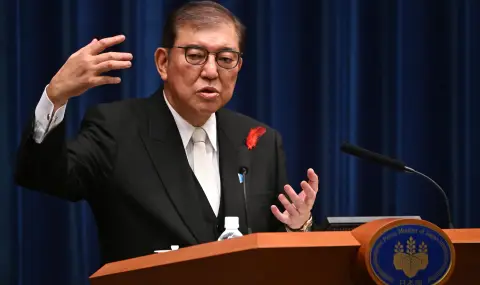The world is more divided than ever and is ready for confrontation, said the new Japanese Prime Minister Shigeru Ishiba in his program speech before the parliament, reported France Press, quoted by BTA.
"Today's Ukraine may be a warning of what could happen in East Asia tomorrow," stressed Ishiba, asking the rhetorical question of why dissuasion has not worked in the case of Ukraine. The prime minister added that, taking into account the situation in the Middle East, the international community is becoming increasingly divided and ready for confrontation.
Ishiba confirmed Japan's readiness to maintain the course of concluding a peace treaty with Russia, despite the dire state of bilateral relations. The main obstacle to the signing of such a treaty remains the southern part of the Kuril Islands, whose ownership Japan disputes after the end of World War II.
Following the introduction of anti-Russian sanctions by Tokyo, Russia ended consultations on the peace treaty. Russia also blocked the continuation of Japan's status as a partner in the Black Sea Economic Cooperation Organization.
In his speech, Ishiba accused both Russia and China of violating Japan's airspace and said the country was in the most difficult security situation since the end of World War II.
Ishiba did not mention a willingness to meet personally with North Korean leader Kim Jong-un, but on domestic politics he expressed concern over Japan's low birth rate and declining population. He defined this situation as a challenge to the foundations of the country, which requires urgent action.
Economically, the new Japanese prime minister announced his intention to increase the minimum wage by an average of 40 percent by 2030. The aim of the measure is to moderate the effect of inflation and stimulate economic growth, with the ambition of an hourly minimum wage of ¥1,500 (€9.30) on average, up from the current ¥1,050.
